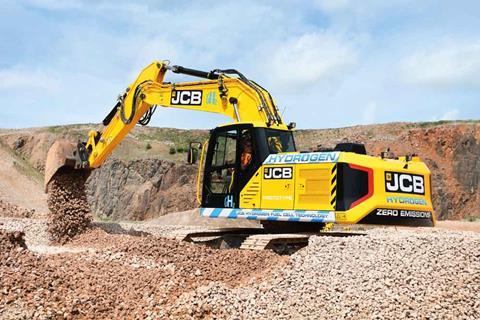Firm calls on government to show commitment to hydrogen sector
JCB has inked a deal to buy billions of pounds of hydrogen fuel as the UK’s COP26 climate conference gets underway.
The construction equipment maker has agreed to buy 10% of the green hydrogen produced by Australian firm Fortescue Future Industries (FFI).
It will make FFI the UK’s largest supplier of the gas, which is considered a key replacement for fossil fuels as it does not produce carbon emissions when used.

FFI, which is a subsidiary of mining giant Fortescue Metals Group, has a target of producing 15 million tonnes of the fuel by 2030 and 50 million by 2040.
JCB chairman Anthony Bamford said the deal was a “major advance on the road towards making green hydrogen a viable solution”.
The deal would see JCB and Ryze Hydrogen, a firm owned by Bamford’s son Jo Bamford, distribute the fuel around the UK.
Jo Bamford called it a “monumental deal, not just for us but for the UK as a whole”.
He added: “We are walking the walk on green hydrogen and now we want the government to show its commitment to the sector by investing in buses, trains, trucks, ships, aircraft and the entire green hydrogen supply chain.”
Most of the hydrogen will be produced outside the UK, with production expected to start early next year.
Green hydrogen differs from so-called ‘blue’ hydrogen because it does not create greenhouse gases when produced, although it is much more expensive.
Production of blue hydrogen creates around nine parts of carbon for every one part of hydrogen, requiring the carbon to be captured and stored underground.
The government’s hydrogen strategy, published in August, has come under criticism for supporting the use of blue hydrogen and not doing enough to bring down costs of green hydrogen.
Ryze Hydrogen is currently building the UK’s first network of green hydrogen production plants.
JCB also announced funding of £100m last month to produce “super efficient hydrogen engines” to power its machinery.
The firm is recruiting up to 150 engineers to work on the project and is aiming to sell the first machines to customers at the end of next year.


























No comments yet